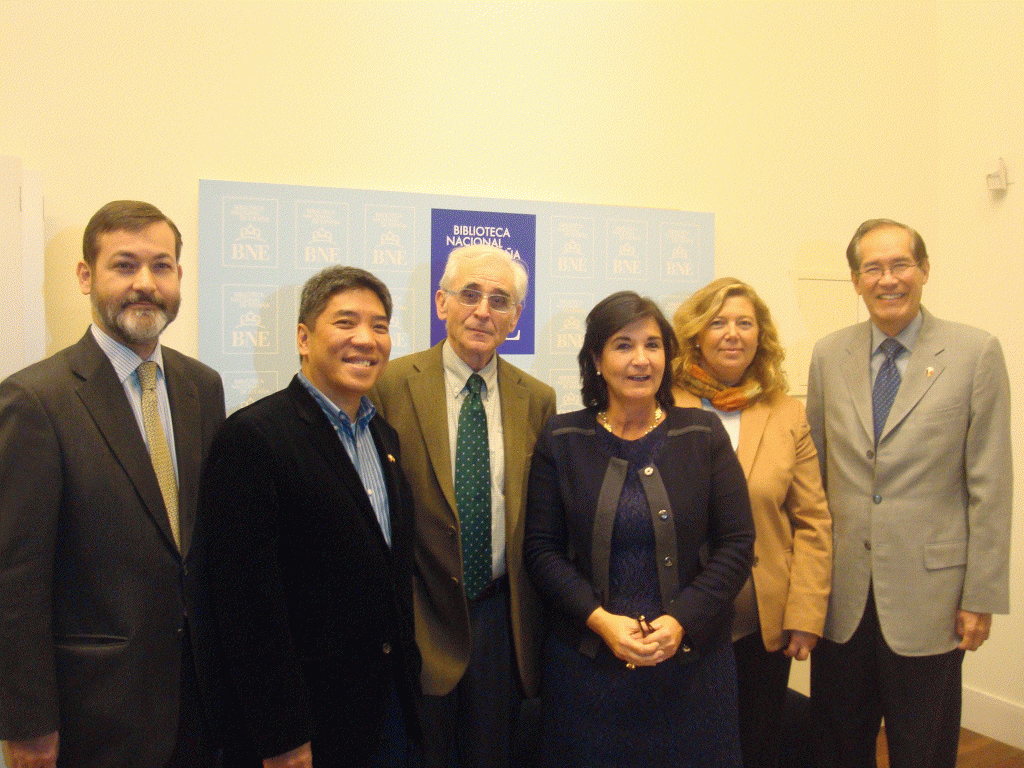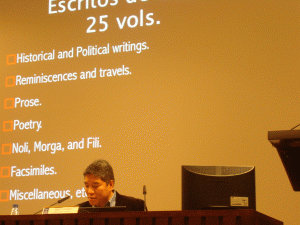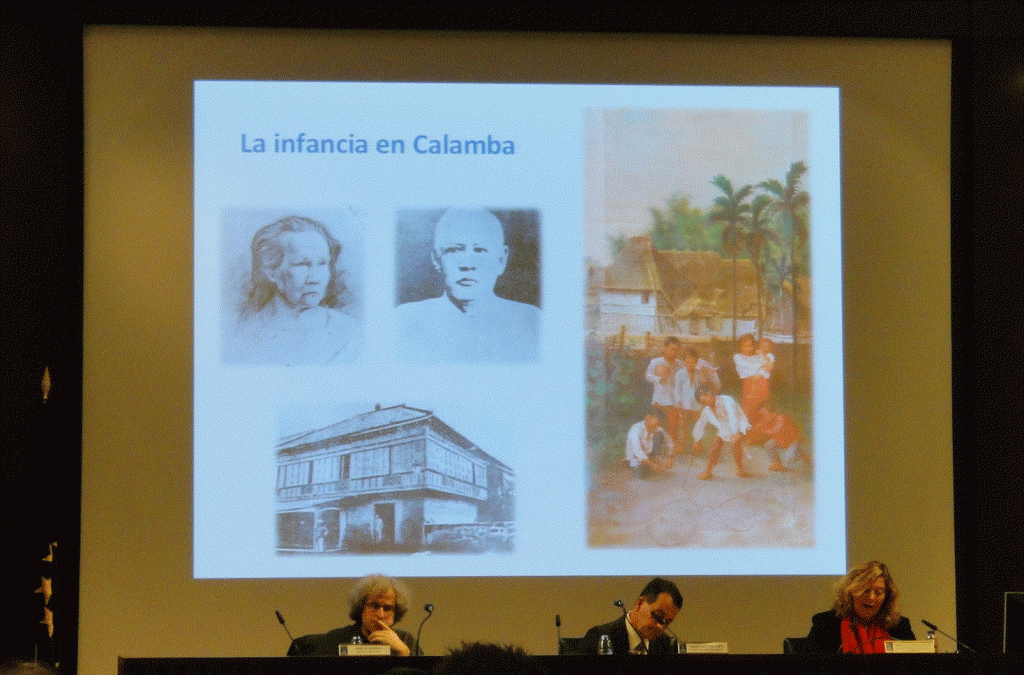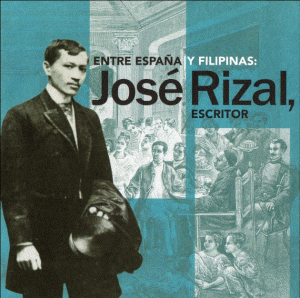03 February 2012 – The Philippine Embassy in Madrid reported that eminent Philippine professor Dr. Ambeth Ocampo delivered a well-received and widely-applauded lecture yesterday, 02 February 2012, at the Biblioteca Nacional de España (BNE) in Madrid as part of the conference series organized by the BNE to commemorate the 150th anniversary of the birth of Jose Rizal.
In his lecture, Professor Ocampo noted that Rizal is not well-known as a writer in international literary circles as he is in his own country. Professor Ocampo showed how Rizal´s literary works (prose, poetry, novels, etc.) had undergone various phases coinciding with his growing political/social consciousness in the course of his 20-minute lecture. In closing, Professor Ocampo mentioned that were other Filipino writers who wrote in Spanish during Rizal´s time and encouraged everyone to discover them which will enable them to see a fuller picture of how the Philippines was in the Spanish period.
The Conference Series, which began on 26 January 2012 and will end on 09 February 2012, aims to give a detailed overview of who Rizal was as a person and writer and to situate him within the political, social and cultural milieu of his time.
Speakers for the Conference Series include known Filipinistas such as Ms. Dolores Elizalde, Mr. Rafael Rodriguez-Ponga, Mr. Xavier Huetz Delemps, Mr. Joseph M. Fradera, and Mr. Leonardo Romero Tovar. Author Mr. Miguel Syjuco will close the conference series next week with a discussion of his award-winning book, Ilustrado.
In addition to the conference series, the BNE in close collaboration with the Agencia Española de Cooperación Internacional para el Desarollo (AECID), is hosting an exhibit on Jose Rizal entitled “Entre España y Filipinas: José Rizal, Escritor,” in Madrid. The exhibit, which will run until 12 February 2012, showcases Rizal memorabilia and snippets of colonial life in 19th Philippines (i.e. education, religion, ethnic groups, past times, dress, etc.). Admission to the exhibit is free.




